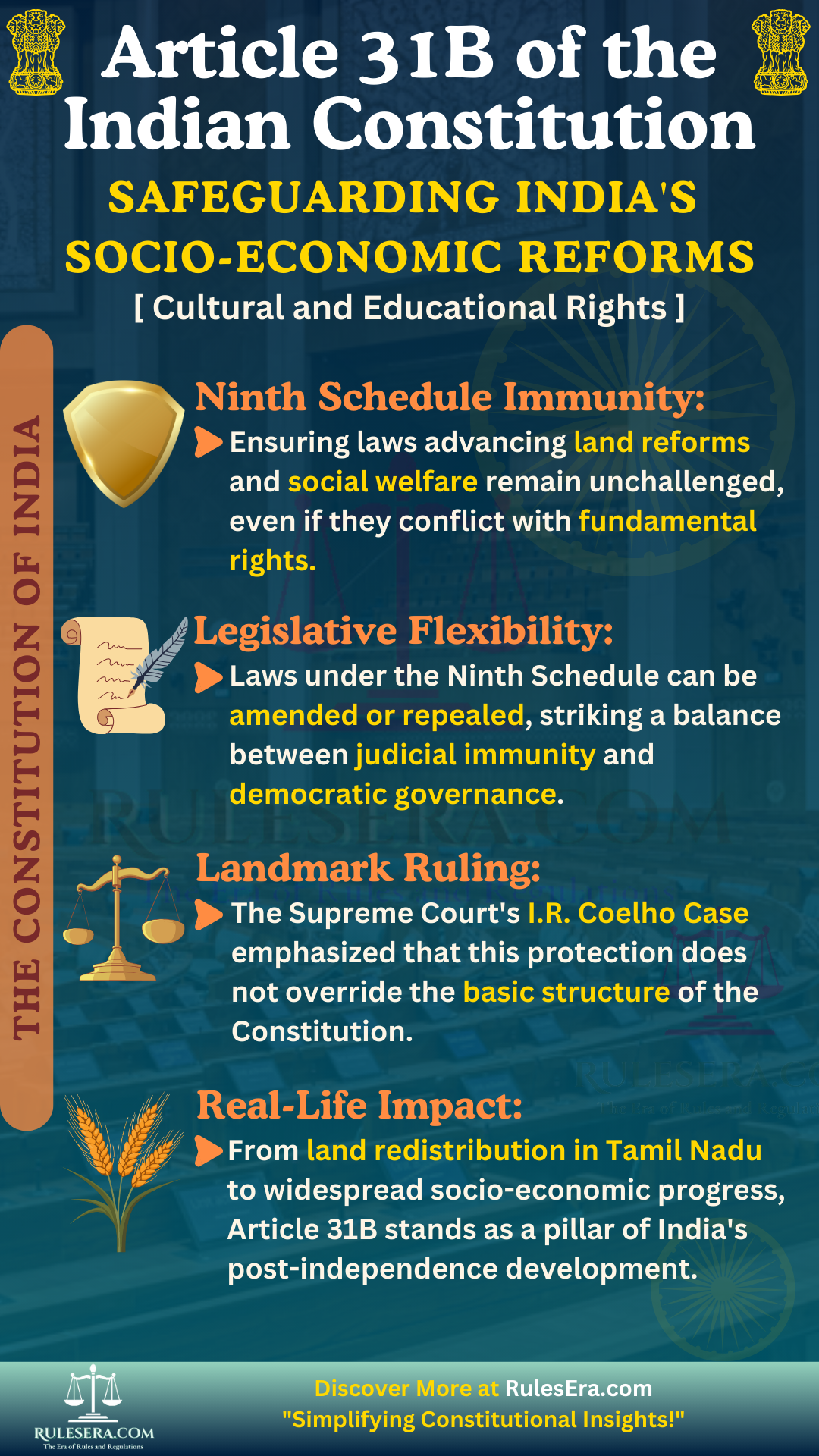Part III: Fundamental Rights
Article 31B: Validation of Certain Acts and Regulations:: Culture and Educational Rights

Without prejudice to Article 31A, none of the Acts and Regulations specified in the Ninth Schedule shall be deemed void on the grounds of inconsistency with fundamental rights.
Explanation
Article 31B protects specific laws listed in the Ninth Schedule from being invalidated due to conflicts with fundamental rights, ensuring their enforceability. This immunity is key to enabling land reforms and socio-economic policies crucial for national development.
Key Aspects of Article 31B
- Protection of Ninth Schedule Laws: Validates laws listed in the Ninth Schedule, safeguarding them from being challenged on grounds of fundamental rights violations.
- Judicial Immunity: Exempts Ninth Schedule laws from judicial review, preserving essential land reforms and socio-economic legislation.
- Legislative Authority: While protected from judicial review, these laws can still be amended or repealed by the legislature, maintaining democratic oversight.
Real-Life Applications
Article 31B was crucial in protecting land reform laws in states like Tamil Nadu, which enabled redistribution of land without interference from legal challenges, advancing social equity and economic development.
Frequently Asked Questions (FAQs):
The Ninth Schedule lists laws that are protected from being challenged on grounds of fundamental rights violations, ensuring their stability for socio-economic reform.
Not entirely. While Article 31B offers strong protection, the Supreme Court’s ruling in I.R. Coelho (2007) allows for review if these laws violate the “basic structure” of the Constitution.